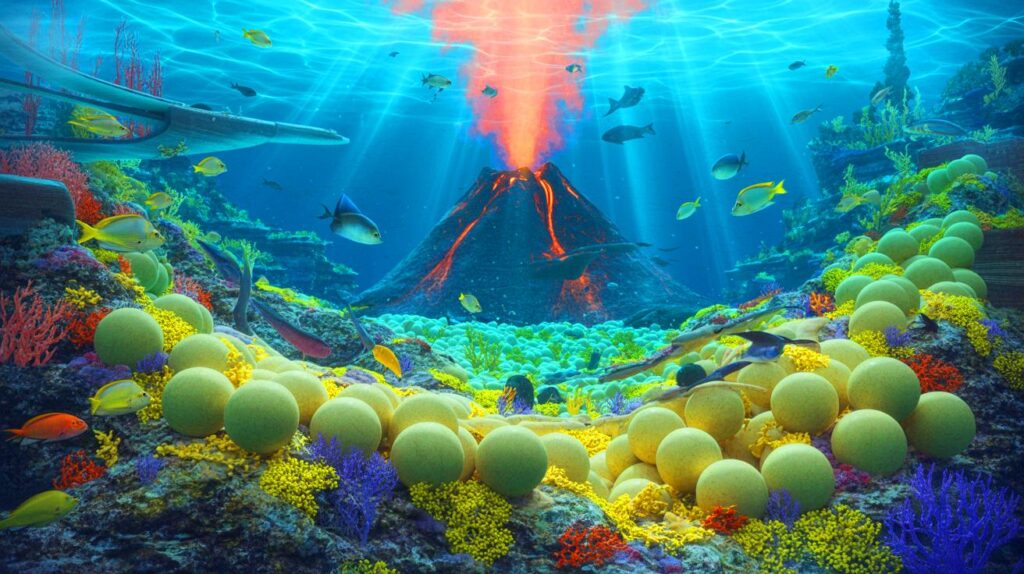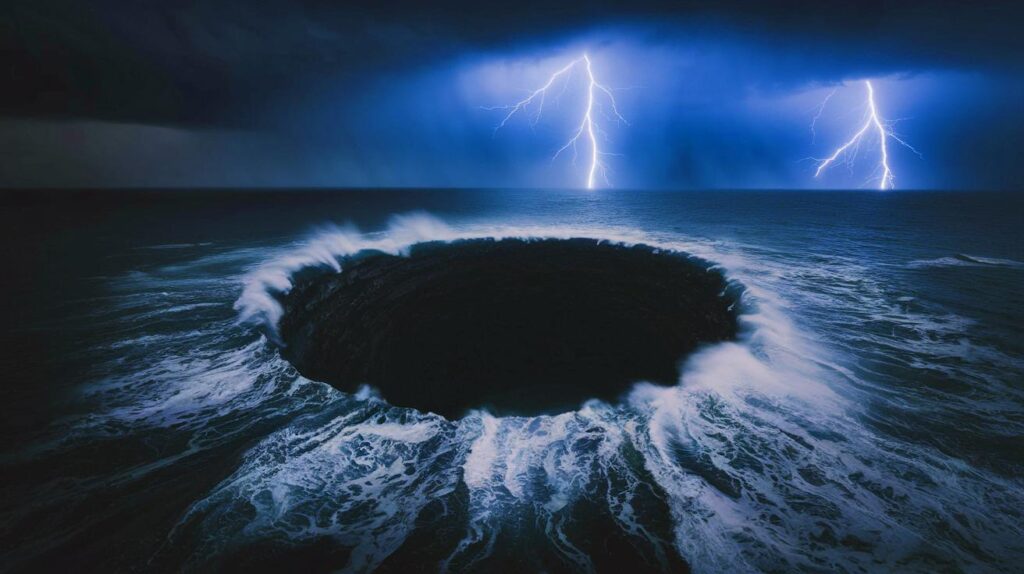| In Brief |
|
The mysteries of the oceans continue to captivate researchers and explorers worldwide. Recently, a fascinating discovery was made near Vancouver Island, where an active underwater volcano unveiled thousands of giant eggs. These eggs, belonging to the Pacific white skate, are incubated in the geothermal heat of the volcano, showcasing remarkable adaptations of marine species to extreme conditions. This finding raises questions about the importance of volcanic ecosystems for biodiversity and opens new avenues for research. How will these discoveries influence our understanding of marine life?
The Surprise of an Active Volcano
The underwater volcano near Vancouver Island garnered significant scientific interest during a 2019 expedition led by marine biologist Cherisse Du Preez. This submarine peak, reaching an impressive height of 1,100 meters, rests at a depth of 1.5 to 1.6 kilometers below the ocean surface. Long considered inactive, the volcano revealed unexpected geothermal activity, expelling mineral-rich hot water and creating a diverse ecosystem.
The heat emitted by the volcano plays a crucial role in the development of the giant eggs discovered. Measuring between 46 and 50 centimeters in diameter, these eggs require a four-year incubation period. The volcanic heat acts as a natural incubator, accelerating the development of young Pacific white skates. This environment underscores the importance of volcanoes for certain marine species, demonstrating their essential role in preserving and evolving marine biodiversity.
The Characteristics of the Pacific White Skate
The Pacific white skate, scientifically known as Bathyraja spinosissima, is an exceptional species living in the cold waters of the Pacific. It thrives at depths ranging from 792 to 2,896 meters. Females of this species lay large eggs, investing significant energy to ensure the survival of their offspring. These eggs are true feats of marine gigantism, providing all the necessary nutrients for embryonic development.
Adults of this species can grow up to 2 meters long, showcasing their perfect adaptation to the ocean’s extreme conditions. The heat from the volcano creates an ideal environment, described by Cherisse Du Preez as “almost a coral garden and a safe nursery for juveniles.” This highlights the importance of volcanic habitats in the early stages of skate life. A similar phenomenon was observed in 2018 in the Galápagos Islands, confirming that volcanic heat is utilized by multiple species for egg incubation.
A Rich and Diverse Ecosystem
Active underwater volcanoes create unique environments that host complex and diverse biological communities. Dissolved minerals in the hot water promote the growth of various organisms, ranging from microorganisms to large marine creatures. These ecosystems are often likened to oases of life in the ocean, where geothermal activity supports a dynamic food web.
Recent discoveries in this region have revealed that several species utilize these environments for reproduction. In 2023, researchers observed a Pacific white skate laying an egg at the site, emphasizing the significance of these locations for the species’ survival. These observations encourage further research to better understand how volcanic heat influences marine life. These ecosystems are biodiversity treasures that must be protected.
Implications for Scientific Research
The discovery of these giant eggs opens new avenues for scientific research. Understanding how marine species adapt to extreme environments can provide valuable insights into the evolution of life on Earth. Submarine volcanic ecosystems represent natural laboratories where researchers can study the complex interactions between organisms and their environment.
These studies could also have implications in other scientific fields, such as biotechnology and medicine. The unique adaptations of species living in these environments could inspire technological innovations. How will these discoveries shape our approach to marine conservation and ocean exploration?
As scientists continue to explore the ocean depths, new discoveries are continuously reshaping our understanding of marine biodiversity. The revelation of an active volcano harboring giant eggs highlights the crucial role of underwater volcanic ecosystems. Could these findings one day revolutionize our approach to conservation and ocean study?







